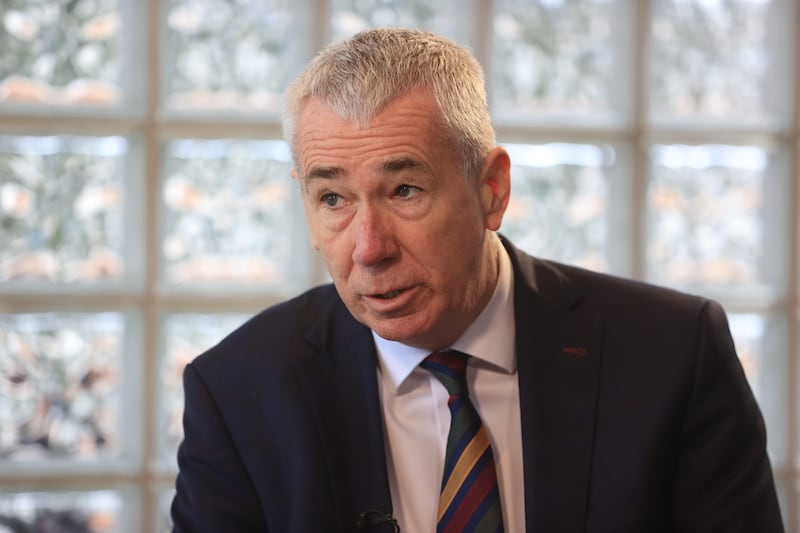The blight of paramilitary flags shows no sign of withering away, with supporters of what are nothing more than violent, illegal crime gangs able to bedeck public property with their tawdry symbols with apparent impunity.
While it is contemptible that flags and banners in support of organisations like the UDA and UVF are flown in loyalist districts – where the crime gangs seek to terrorise and control their own communities – it is also alarming when they appear in places widely regard as mixed. The intent can be nothing other than to intimidate the public and mark out territory, haunting it with a sinister spectre of sectarianism.
As this newspaper has highlighted, UDA flags have recently appeared on lamp posts outside the large Tesco Extra store at Newtownbreda in south Belfast. SDLP councillor Donal Lyons has described the flags as creating a "chill factor", which helps to capture the pernicious atmosphere associated with paramilitary flags.
Mr Lyons makes the point, entirely reasonably, that "most people of all traditions did not want flags in their area". He argues that the fact that the store attracts large numbers of people and is situated on a busy road is a reason it has been targeted for the erection of UDA flags.
Although Tesco has not commented on the development, Mr Lyons believes the flags will affect businesses in the area by deterring customers: "They vote with their feet and they stay away. If you're a worker in Tesco as well, how do you feel about having to pass under a paramilitary flag every day to get to work?"
The Commission on Flags, Identity, Culture and Tradition, which eventually reported in 2021, also highlighted the negative impact on business and tourism of flag-flying.
Its findings – which included a firm ban on paramilitary flags and a proposed code of practice on the 'respectful display of flags' – have been mothballed, which many will see as a further example of Stormont's failure to get to grips with yet another of this society's difficult issues.
While political direction is essential, sectarian flags hide other problems which are often deeply rooted in our society and culture.
An important step to addressing these would be to urgently bring to an end the game of pass-the-parcel between various authorities - from the PSNI and Department for Infrastructure, to councils and landowners - about who is responsible for taking down flags.
Taking action against those who feel emboldened by the law's apparent impotence to deal with anyone who puts up paramilitary flags in broad daylight is also essential.








